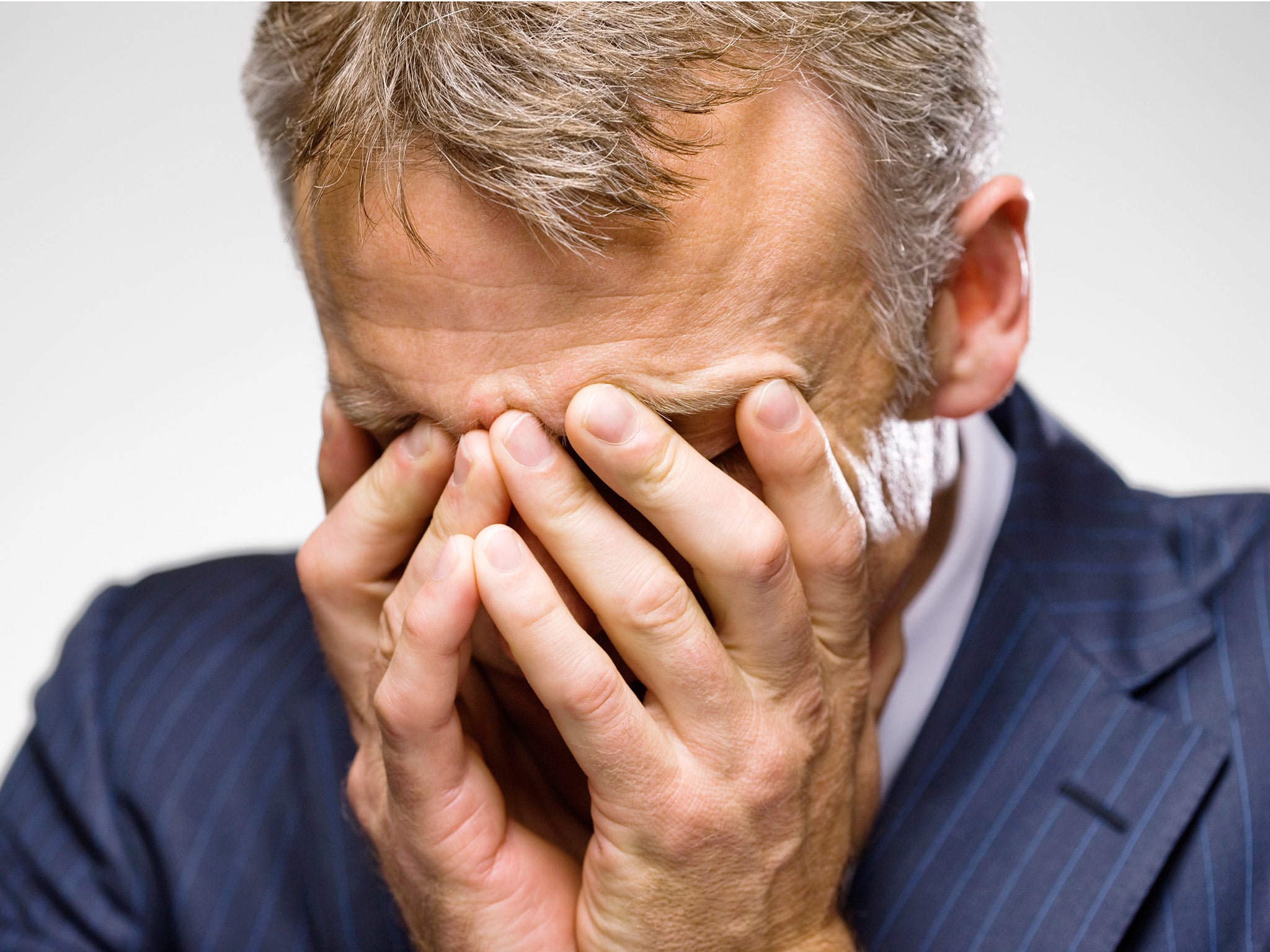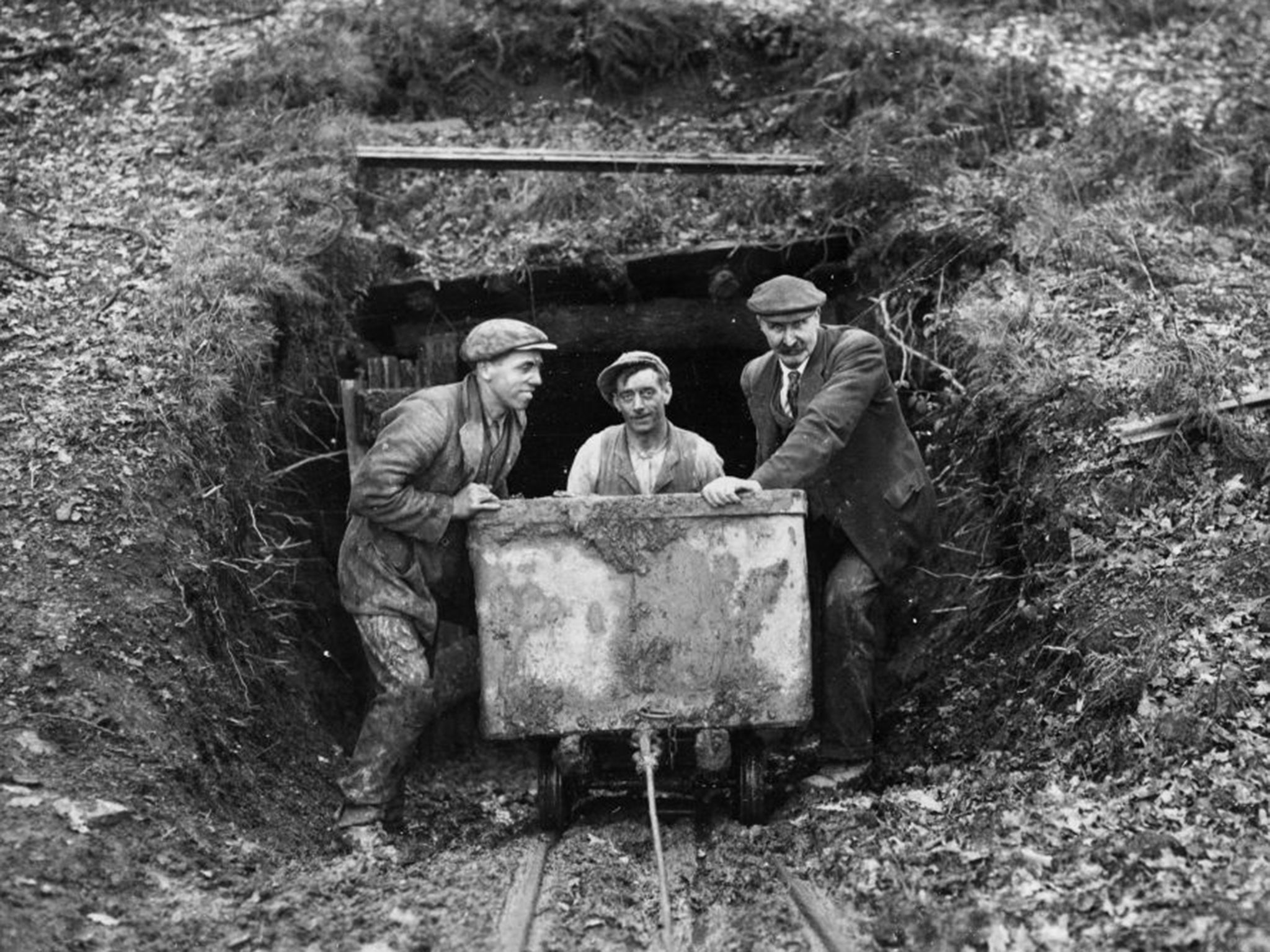The male menopause and intimations of mortality

As one whose 55th birthday looms like an iceberg through Arctic fog, I read last week’s reports of the “controversial” study alleging that the male menopause really exists with all the enthusiasm that a goose would bring to the news that Strasbourg pie was about to be banned by EU law. At last, I thought, someone understands us.
The symptoms, according to a paper submitted to the Journal of Ageing by researchers at the London Centre for Men’s Health, include hot flushes, night sweats, joint pain, low libido, depression and an increase in body fat. These misfortunes are apparently the consequence of a fifth of men beyond the age of 50 suffering from testosterone deficiency.
What is it, you might wonder, that makes the report controversial? Well, a substantial tranche of medical opinion thinks that the symptoms outlined above – by none of which, thankfully, I happen to be affected – are merely a result of the stresses and strains to which the specimen middle-aged life is subject. Then again, there is a suspicion that the procedures on which the study bases its conclusions – administering testosterone to some 2,000 men for the past quarter of a century – are inadequate. Among the report’s detractors, Professor Jonathan Seckl of the University of Edinburgh maintains that this is a “complex topic” which “cries out for a large, blinded, randomised clinical test”.

All this – testosterone counts, stress, strain and fiftysomething night sweats – is perhaps less important than what it might be supposed to symbolise, for the concept of “middle age”, on which so much medical inquiry these days seems to be predicated, is a comparatively recent one. In fact, until well into the 20th century, even in the Western World, the idea that there existed a kind of generational plateau known as “mid-life”, in which man and woman could take stock and judiciously survey the world around them, scarcely existed. Early Victorians, for example, reached the end of their youth – generally believed to be the early thirties – and then matter-of-factly acknowledged that they were “old”.
Sometimes this realisation can seem absurdly premature – Thackeray was informing his bride to be that he was “a sulky, grey-haired old fellow” at the tender age of 26 – but the general assumption, until at least the end of the Victorian era, was that your best days were behind you by the age of 35. “You ain’t young, nor yet you ain’t old”, an elderly woman lectures one of Trollope’s mid-thirty heroes – a man who by the standards of the 21st century might be assumed to be more or less fresh from the classroom. Exactly the same note is struck in Thackeray’s own Lovel the Widower (1862) whose protagonist is, at 34, considered only just insufficiently venerable to find a new young wife.
Stemming as they did from a world before antibiotics and contraception, where a woman could be worn out by childbirth come her mid-twenties, many of these assumptions persisted deep into the modern age: a premature ageing process exacerbated by class distinctions, the tendency of most working-class men to make their living out of physically demanding manual labour, and also, it must be said, a kind of fatalism about the whole business of growing old. George Orwell in The Road to Wigan Pier makes the point that most working-class people in the 1930s simply gave up on their youth from the moment the first signs of ageing made their presence felt. No one in the depressed industrial North had either the money or the inclination to go out jogging or join a gym.
At the bottom of this, too, lay that age-old native puritanism which insists that realities have to be faced, that the Grim Reaper cannot be denied and that to pretend that you are still young when the evidence of face and figure suggests otherwise is to delude yourself. Even in the 1920s the most common description of a middle-aged man still putting himself about in a vigorous manner was “Peter Pan” – one of Evelyn Waugh’s early pieces of journalism talking up the merits of young people appeared under the heading “Youth Calls to the Peter Pans of Middle Age Who Block the Way”. The people Waugh is complaining about, it transpires, all those “ex-captains and majors” from the Great War stymying the younger generation’s chances of preferment, are barely out of their thirties.
What changed all this – the thought, as Waugh puts it, that from birth to 41 is “young and brilliant” and after that merely “distinguished”– was the post-war package of affluence, advances in medical science and statutory retiring ages. Its cumulative effect was to suggest, at any rate to anyone beyond the level of a slum tenement, that there now existed an incontestable space between youth and seniority with its own codes, protocols and behavioural practices – that to be a middle-aged person was quite as interesting, valuable and fulfilling as to be young. By the 1950s, consequently, analyses of the middle-aged state start to feature in fiction (see Angus Wilson’s The Middle Age of Mrs Eliot, from 1958), or form the subject of Punch articles determining the differences between its various layers: “early middle-age” defined as being amused when younger men at the office call you “sir”, “late middle-age”, alternatively, defined as turning irritable when they omit this courtesy.
And yet the more attention that was devoted to “middle age”, the more medical studies focused on its downsides and the more the members of its notional demographic were encouraged to relish the state in which they found themselves, the more elastic it became. What, for example, does it mean to be described as “middle-aged” here in 2015? After all, no 67-year-old eligible for a state pension likes being called “elderly”. Essentially the term has leached out on both sides to include practically everyone between the ages of 40 and 70, in other words rendering it meaningless when it comes to hard-and-fast analyses of attitude and opinion. The generational bond connecting, say, a man who recalls the snow-bound winter of 1947 and a woman whose first conscious memory is of being handed a post-decimal two-pence piece may exist but it is likely to be fairly elusive.
Meanwhile, there is that whole idea of the “mid-life crisis”, which certainly does exist, whether or not, at least in 50 per cent of the population, it takes the form of a “male menopause” or is simply stress working itself out in physical form. Again, a Victorian would probably declare that in the majority of cases this was merely another modern luxury, that men in their fifties whose lives are genuinely in crisis have worse things to deal with than joint pains and night sweats, that existential angst, to which contemporary fiftysomething seems particularly prone, is merely a result of the soft lives the majority of us lead. Thackeray, after all, was dead at 52 – an age when most of his modern equivalents are just getting into their stride.
If middle age is such an uncomfortable time for some of us, it is probably because, for the first time in history, that state gives us a breathing space; an opportunity to see ourselves sub specie aeternitatis; to reckon up the kind of people we are or, worse, might have been, and contemplate the prospect of extinction. None of this is calculated to raise self-esteem, and the middle-aged man informed he is low on testosterone has probably got off lightly.
Join our commenting forum
Join thought-provoking conversations, follow other Independent readers and see their replies
Comments